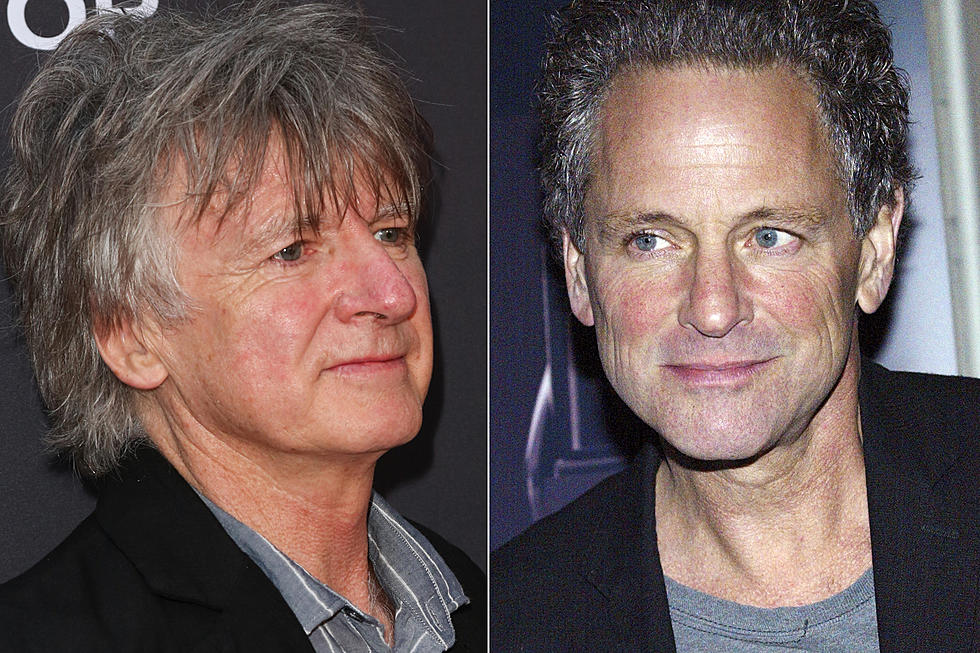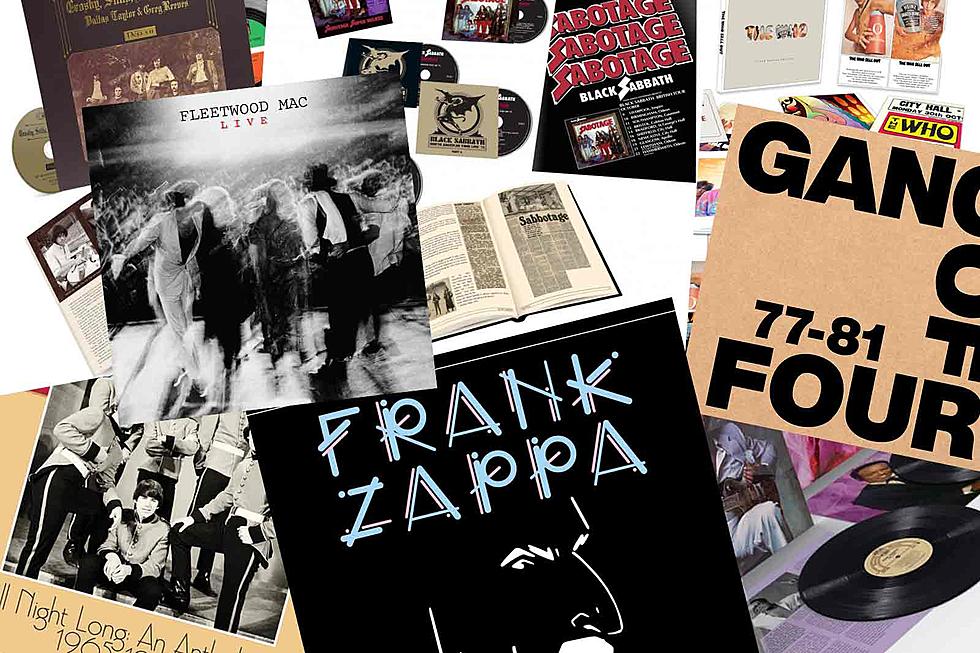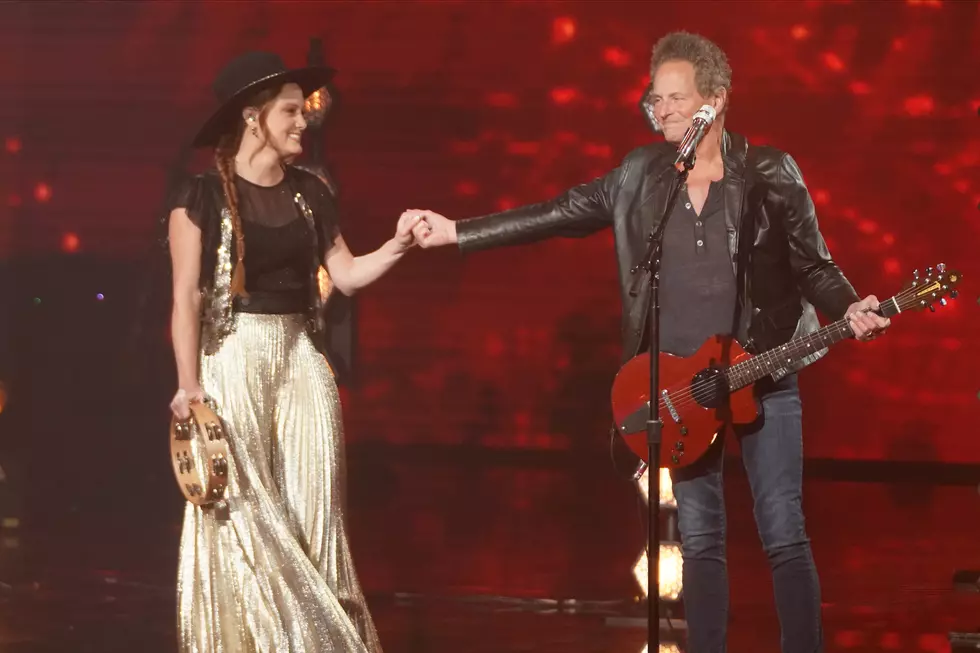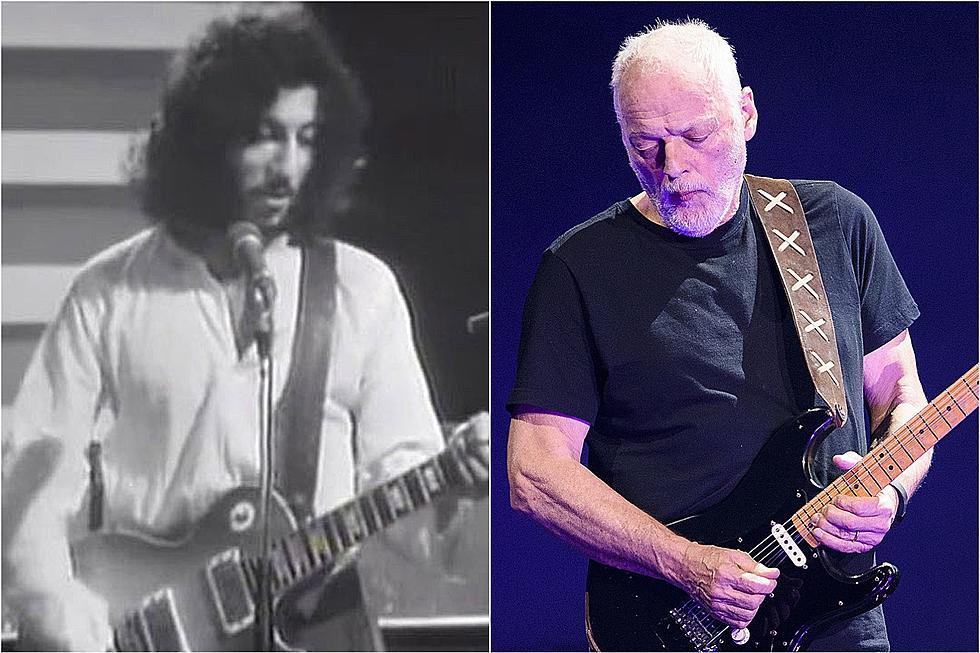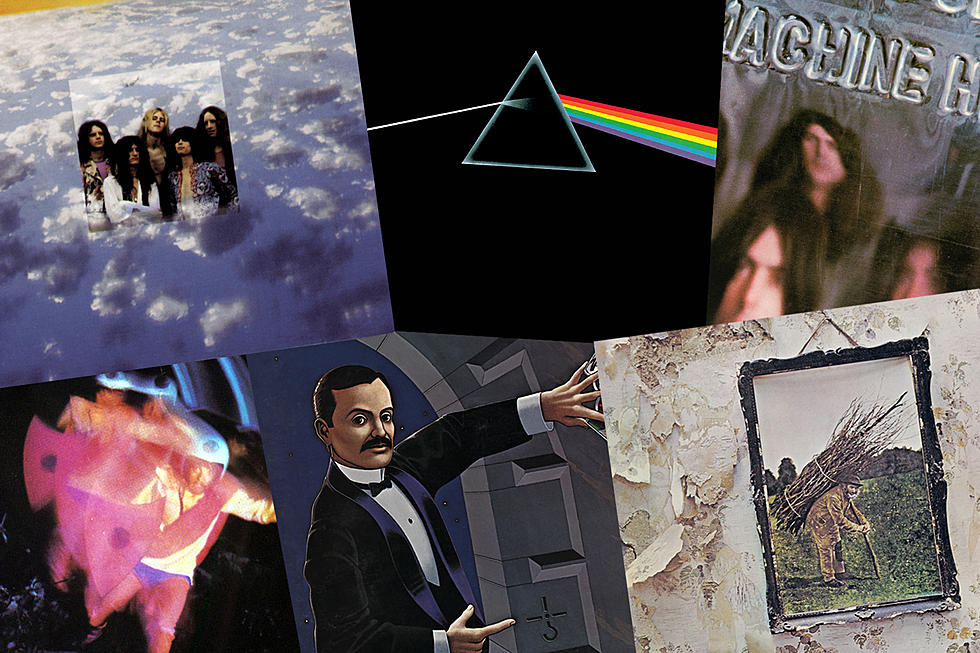
Mick Fleetwood Says ‘Without Peter Green, There Would Be No Fleetwood Mac': Exclusive Interview
Fleetwood Mac have been making music since 1967. That's a lot of history. Most people are familiar with only the multi-million-selling albums, like Fleetwood Mac and Rumours. As great as they are, those records are only part of the band's story.
Drummer Mick Fleetwood's new book, Love That Burns: A Chronicle of Fleetwood Mac Volume 1, 1967-1974, shifts the focus to those early years. Back then, he says they were just "four young chaps who loved playing blues." But there was much more to what Fleetwood Mac created with their original lineup of Fleetwood, guitarist Jeremy Spencer, bassist John McVie and the band's leader, guitarist Peter Green.
With its treasure trove of photos and text, Love That Burns tells the tale, following Fleetwood Mac through the mid '70s, just before the band had its breakthrough moment. Fleetwood talks about the book, his early inspirations and Fleetwood Mac's underrated early contributors in an exclusive interview with Ultimate Classic Rock.
Congratulations on the new book. It's a fascinating look at the early years of the band. What first inspired you to put this together?
Well, it's a long story really. The original inspiration probably came over 20 years ago when my ex-brother-in-law George [Harrison] showed me a beautiful book that he put together in collaboration with Genesis Books. At that point, I didn't know who they were. I said, 'This thing is beautiful,' and it was one of those things where you go, One day it would be a fantastic thing to do something like this. I made an approach to work with Genesis, then sort of got lost in the mire of what I was doing, then it went off radar, but I always remembered this incredible book. They take all this beautiful care. It's leather bound, and this that and the other. Then years and years later, about two and a half years ago, I was in L.A. and was walking around a shop and picked up a book that had a picture of Jimmy Page on the front, and lo and behold it was a Genesis book. I was with my nephew, and right then and there I turned around to him and said, 'Phone them up and see if they'd like to do a book on the original band.' So he cold-called Genesis and started a dialogue, and that's how we got to where we are. So I can blame it on George Harrison all those years ago.
The book truly is like a work of art.
Well, there you go. I remembered that, and Page's book was so beautiful as well. The great thing was, and more power to them as a book company, I understand they said 'We really want to do a book on Fleetwood Mac,' which would be the whole thing, but I really wanted to keep it focused on how this all started, and the fact that they saw the credence in all that was fairly remarkable in itself, when you look at why they might not want to do it. So we've ended up with this first chronicle of this period, which needs to survive and that's why I was sort of really pushing for that to happen in this way. There is going to be Volume Two, and that's going to be a labor of love putting that all together as well. Lo and behold, as the clock was ticking, we seriously didn't even realize that we were drifting into the date to celebrate the original incarnation of Fleetwood Mac's 50th birthday, which was not part of the plan at all. So that's how we got here.
That's wonderful. When most people think of Fleetwood Mac, they immediately zero in on the late-'70s era, but there is so much more to the band's story.
I'm just really happy with the document itself and its importance, which became more profound in terms of the 50th anniversary. I am really happy with the book, and it is guided by myself, but I'm hoping that the complexion of how this whole thing stands is not an 'I, me, me' thing at all. It's me paying kudos to what this was all about, and what started this strange creature called Fleetwood Mac on its journey, and if I have achieved that to some reasonable degree, I'm happy. So far people are, with much zeal, saying we are accomplishing that. I mean Peter [Green], just by the nature of the journey he took emotionally, and the way his life ended up being framed ... One, he has so little ego about any of this. He's not going to sit there and wave his own flag. Danny [Kirwin] is off the radar and not a very happy story there, and Bob Welch has passed away. You think some of this might be forgotten about, and I'm hoping this is at least a foot through the door to say, Hey, anyone who wants to find out about all this, it's relevant and I'm glad to have done it.
Have you always been the sort of archivist of the band? There are countless amazing photos in the book. Did you seek out a lot of the photos or were they in your collection?
Part and parcel of both things. I thought, in truth, I had more bases covered with a variety of stuff, but upon looking in endless boxes and in my barn and so forth, they either got lost or we didn't find. Having said that, I'm sort of glad that the outcome was what it was, thanks to Genesis, they are so talented with finding material, which they did. I'm actually happy that it happened differently than I thought it would, because the photographs that are personal, I knew where and what they were all about to help tell the story. The unknown photographs from shoots and from people that I did not know and was not familiar with actually spoke volumes for me and made it more of journey challenging me as to what was going on. That was more valuable than the whole load of pictures that I did know. I'm glad it happened like that, where at first I thought, Oh, my God, we’re failing to find all the pictures we need. It became a community of input, which seemed apropos. We've ended up with a really nice story telling about the first few incarnations of Fleetwood Mac. I write about it in the book, for obvious reasons, the lion's share of the book is dedicated to Peter Green. He started Fleetwood Mac, and I say very clearly without Peter, there would be no Fleetwood Mac, period, so let's get that straight. There are those who think that I formed Fleetwood Mac, well, I didn't. I was happy to be at Peter's side when Peter asked me to play drums. The rest is, of course, a long history of me being there since the beginning, and on and on we went!
So you left home at 15 to become a full-time musician. Who or what first inspired you to become a drummer?
We don't really know! A lot of people think my father was a drummer. My father was not a drummer, but he had, unbeknownst to me, messed around in the officer's mess on a drum kit. Dad was a tapper, getting a ruler or pencils and playing wine glasses with water in them at parties or tapping money in his pockets, playing spoons or something like that. That was really the sum of it. If that sort of spawned the attitude to go and be pipe dreaming about being a drummer, then so be it. I don't really know where it came from, but I used to sit around hitting furniture while Mum listened to the radiogram. So it started pretty early, probably when I was about 8. When I was at boarding school, all I wanted was to have a drum kit. I used to send away for catalogs. I would tape them all together and walk around school, an academic idiot, no smarts at all, but I had a nice big dossier of glistening drum kits. [Laughs]
Do you remember your first drum kit?
I do! My first drum kit was called a Gigster. It was almost like a toy. Gold sparkle, tiny, almost like a toy, but it was a drum kit I used to sit on the side of the sofa. There's a picture in the book of me playing that kit. Then I was off to the races, and never stopped. Then I left school when I was spot-on 15 and, at the time I was not even 16, I was on my way to London, then shortly after that a friend, who became a lifelong friend until he passed away, Peter Bardens [later of the band Camel], heard me banging around in my sister's garage in Notting Hill Gate. He lived in the same cul-de-sac, and he said, 'Hey, I heard you playing drums. I'm playing at a youth club and managing a band called the Fenders.' I'd never played with anybody, all I'd done was play at home to the radiogram and banged along to records. That's how it started. It was like a total dream come true. That's all touched on in the beginning of the book.
Each of the early incarnations of the band had its own identity, and the book shows how they connect. Over time, people would occasionally refer to the Peter Green era, but it seems only recently have more people begun to make note of the Bob Welch years.
Bob is very much an unsung hero in many ways, considering how many albums he made with Fleetwood Mac. His partnership, especially with Christine [McVie], they worked really well together. She never really worked very closely with Danny, the chemistry thing wasn't necessarily there, but with Bob it was, and he was a great mechanism. We basically went off to America. In Europe we took a dump really, after Peter left, somewhat understandably. Peter was simply such a powerful entity in those early days. So, we went off to America to somewhat lick our wounds, and we ended up staying there. There's no doubt Bob was a huge part of the survival of this crazy band.
What did you take away most from putting the book together?
For me, the whole book has been really enlightening, a regrouping from whence you have come in terms of the dynamic of what it means to me. Hopefully if John [McVie] picks up the book, he'll go, 'Yeah, I'm glad that's been done.' It's been an education on how we started, and what it was all about and I'm glad I've done it. The book is about celebrating the music that caused all of this. There's quite a drama, there is no doubt that the cause and effect of the journey has some collateral damage on some of the people, Peter being one of them. But this is the celebration of this period. I pretty much left out that whole sensibility, not because I'm hiding it, it's certainly known about, but I didn't want it to be that. I wanted it to be something that would really put a line in the sand and say this was about four young chaps who loved playing blues and started this whole thing.
Fleetwood Mac Albums Ranked Worst to Best
More From KLUB Tejano 106.9



